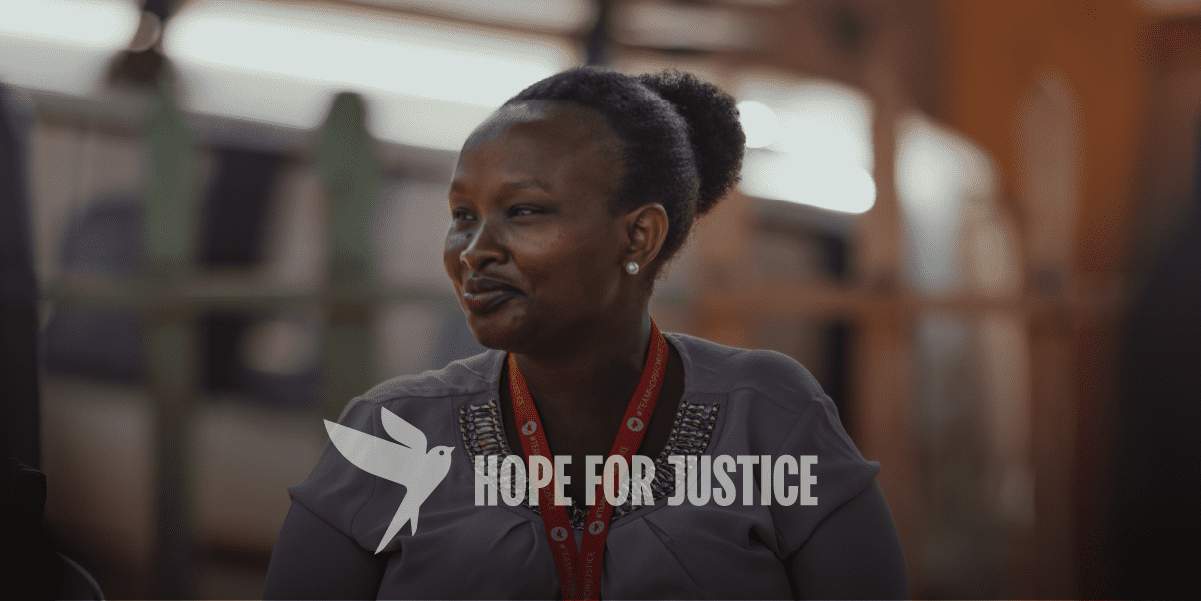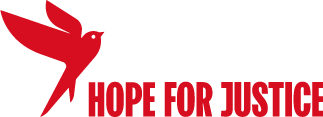Thinking of volunteering at an orphanage overseas? Do this instead.
This article is reprinted from its original location at Hope for Justice‘s website. It was pulled from their RSS feed for your education.

With Covid-19 travel restrictions largely lifted, opportunities to volunteer overseas are opening up again. Many of us want to use some of our time and resources to help those living in extreme poverty. And, whether it's for a gap year or a short-term mission trip, doing so in-person, by teaching at a school or visiting an orphanage, seems like a great way to learn about another culture and make a difference. But, despite the best of intentions – did you know that volunteering at an orphanage abroad can end up doing more harm than good? Maggie Crewes, Cambodia Country Director at Hope for Justice, explains.
There are millions of children worldwide living in orphanages, but it is estimated that at least 80% of them have at least one living parent. With the right support, these children could be reunited with their parents. What is keeping them apart, in many cases, concerns human trafficking and child exploitation.
Traffickers know that ‘voluntourism' is big business. Over 10 million people, mostly from North America, Australia and Europe, travel to volunteer abroad each year, creating a multi-billion dollar industry. Those looking to help in an orphanage are sometimes asked to pay to be able to volunteer in an institution (though often couched as fees, or to facilitate transport, visas or other documents needed). It can be a highly charged emotional environment and volunteers are also strongly encouraged to donate during or after their visit. Many times, with the relationships made through volunteers and groups, the orphanage owners use this to solicit ongoing funds from charities and churches abroad.
Interestingly, orphanages are often established in key tourist areas and, as the number of visitors increases, so do the number of institutions. In countries like Cambodia, Uganda and Nepal, it is not that there are more orphans needing care – instead, traffickers (sometimes the orphanage owner themselves) actively approach families in poverty, and promise parents that they can offer their child a good education, food and a better future, in an effort to keep their institution full to over-flowing.
The reality is that orphanages are most often run like a private business. The owners are often incentivised to keep children in a state of neglect and in poor conditions as it encourages visitors to donate. Even in the ‘best run' orphanages, data from over 300 studies shows that growing up in an institution often has a devastating impact on children's physical and mental health, as well as their cognitive and psychological development. Children in orphanages are at four times greater risk of sexual violence; young adults raised in institutions are 10 times more likely to fall into sex work than their peers; and they are 500 times more likely to die by suicide.
At Hope for Justice, we always prioritise family-based care. The importance of growing up in a family with one-to-one care and attention, and long-term psychological attachment to their primary care-giver is critical to a child's long-term wellbeing. This is why our Lighthouses offer only short-term care for survivors of trafficking and those most vulnerable to it. As soon as the child is ready, we work tirelessly to reunite them with their own families (either their direct family or with another relative where necessary). Sometimes this is not possible, so we look to place children in safe, longer-term foster families. Or, for older teenagers, we may prepare them for independent living, through vocational training, life skills lessons and mentoring.
At the same time as our staff are busy reuniting the child back home, we also work with families to be more resilient against some of the key ‘push' factors that lead to child exploitation. This involves giving care-givers training on the risks of trafficking; and providing them with business skills training and grants, so they are not vulnerable to the enticements of traffickers.
Not only is this better for a child's development and provides protection for their siblings and other families in the community, but it is also more financially sustainable. It costs at least four times more to keep a child in an institution than to support a family to meet their own children's health, education, and material needs – providing protection to both the separated child, as well as protection to the other siblings.
So, by supporting Hope for Justice to deliver family-based care, you can help more families, have a more positive impact on children's lives, and be confident that you really are helping to end this form of child exploitation and modern slavery for good.
This “Eyes on Trafficking” story is reprinted from its original online location.
 ABOUT PBJ LEARNING
ABOUT PBJ LEARNING
PBJ Learning is a leading provider of online human trafficking training, focusing on awareness and prevention education. Their interactive Human Trafficking Essentials online course is used worldwide to educate professionals and individuals how to recognize human trafficking and how to respond to potential victims. Learn on any web browser (even your mobile phone) at any time.
More stories like this can be found in your PBJ Learning Knowledge Vault.
EYES ON TRAFFICKING
This “Eyes on Trafficking” story is reprinted from its original online location.
ABOUT PBJ LEARNING
PBJ Learning is a leading provider of online human trafficking training, focusing on awareness and prevention education. Their interactive Human Trafficking Essentials online course is used worldwide to educate professionals and individuals how to recognize human trafficking and how to respond to potential victims. Learn on any web browser (even your mobile phone) at any time.
More stories like this can be found in your PBJ Learning Knowledge Vault.

